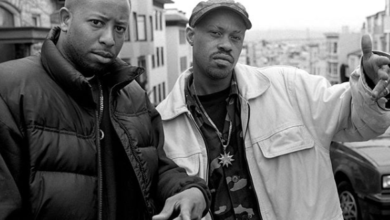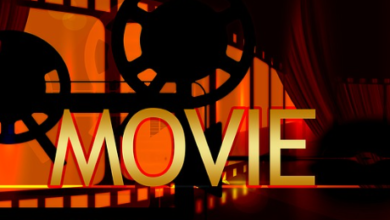‘Athena’: Incendiary new Netflix film wants to burn it all down

Within “Athena’s” first ten minutes we witness a tense press conference erupt into violence, a raid on a police station by angry youths and a thrilling race back to their urban fortress with pillaged goods. Only after a barrage of breathless action and mind-boggling camerawork, when they mount the barricades in victory, does the director decide to call cut.
Karim (played by newcomer Sami Slimane) is grieving the loss of his younger brother, beaten to death by uniformed officers — the third case of police brutality in two months at Athena, an impoverished community on the outskirts of Paris. He wants names but the police deny responsibility. Their brother Abdel (Dali Benssalah, “No Time To Die”) is a soldier pleading for peace, while oldest brother Koktar (Ouassini Embarek) is a drug dealer worried a riot will be bad for business. Karim, meanwhile, has emerged as a figurehead ready to take a generation to battle.
Soon after the raid, police descend on Athena to face down the youths. Caught in between are their parents and extended families. The film questions their passivity while asking sympathy for them, as well as Jerome (Anthony Bajon), a frightened officer sent into the fray. But mainly we’re channelling Karim’s righteous anger, unpersuaded by his brothers’ interventions.
Gavras and co-writers Ladj Ly and Elias Belkeddar tell the story of the siege that follows nearly entirely within Athena’s concrete labyrinth, building around a series of long takes emphasizing the chaos of running skirmishes and Karim’s makeshift plans. Filmed with IMAX cameras, Molotov cocktails and Roman candles launch into the night; masses of bodies fill corridors, race across rooftops and crash into one another to the sound of a baroque score.
What if the Trojan War took place in a Parisian housing estate? It might look like this. With its clashing brothers, mythologized men and epic sense of scale, “Athena” is reminiscent of Greek tragedies of old. Yet its pains are rooted in the today — and they’re keenly felt. It’s a bravura piece of cinema from a general behind the camera; one that inevitably calls attention to the art of warfare that is filmmaking itself. The logistics of it all makes the head spin.
“Athena” is in select cinemas now and is available on Netflix September 23.
The interview: Romain Gavras, writer-director
Gavras, an alum of music videos including Kanye West and Jay-Z’s “No Church in the Wild,” is no stranger to capturing an uprising. But he’s never done it at this scale before — no wonder he cites epics like Francis Ford Coppola’s “Apocalypse Now” and Akira Kurosawa’s “Ran” as inspirations for “Athena.”
“There’s no CGI in the film, we do everything for real,” Gavras says. “The planning, weirdly, was almost military and very precise to create chaos in front of the camera.”
One to stream now: “Saloum”
Congolese filmmaker Jean Luc Herbulot delivers a lively midnight movie about three mercenaries on the run in a remote corner of Senegal. Yann Gael, Roger Sallah and Mentor Ba entertain as tough guy gunslingers, but their cocksure attitude is tested when a paranormal foe threatens them and their stash of gold. Herbulot’s twisty neo-Western (a “Southern,” he calls it) packs plenty of themes and undead West African history into its tight runtime. The spectre of colonialism and the exploitation of people and place loom large, offering a sombre note. Nevertheless, it’s good pulpy fun with a fierce imagination and eye-catching visual flair.
One to bookmark for later: “No Bears”
Source link





